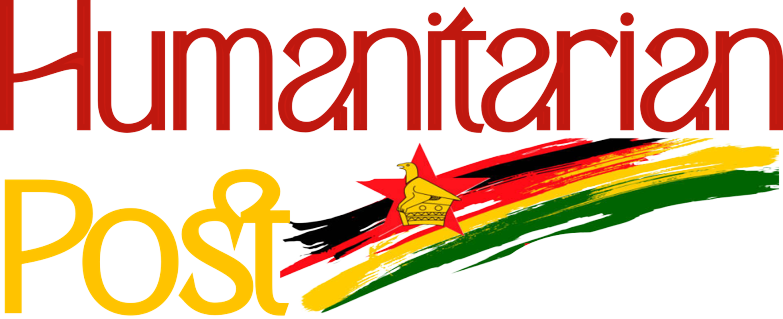Minister Soda Zhemu in US$120 million corruption storm

By Staff Writer
FORMER Petrotrade board chair Tinomudaishe Chinyoka claims Energy and Power Development Minister Zhemu Soda, dissolved his board in a bid to block an investigation to establish circumstances under which the parastatal lost about US$120 million in a suspected corruption scandal.
Chinyoka revealed the alleged corruption in an urgent High Court application challenging his suspension.
Energy minister Zhemu Soda dissolved the Chyinyoka-chaired board last week pending investigation of “matters of corporate governance,” a year after appointment.
Other members of the suspended board include Gladys Mumhure, Simbarashe Eric Mhuriro, Ferida Matambo, Lilian Timveos, Getrude Marabada, Godfrey Ncube (acting chief executive) and Dakarai Mukuku
Chinoda cited Soda, Vice-President Constantino Chiwenga, Auditor-General Mildred Chiri and PetroTrade (Pvt) Limited as respondents.
Chiwenga was cited in his capacity as the administrator of the Public Entities and Corporate Governance Act.
Through his lawyers, Gunje Legal Practice, Chinyoka accused Zhemu of attempting to block investigations into allegations of graft by shielding suspects within the company from facing justice.
He claimed in the application that there was a plot to sell PetroTrade for US$20 million under unclear circumstances, a figure he said was “a fraction of its value.”
He said PetroTrade managers authorised construction of a service station at a cost of over US$2 million in Mabvuku without following the procedures.
“In the meantime, the board tried to cause a forensic audit to be done by the third respondent (Chiri) and had written to her to that effect. However, the first respondent‘s permanent secretary (Gloria Magombo), in the presence of the first respondent (Soda) had given the board a dressing down stating that it was not the board’s remit to ask for a forensic audit,” Chinyoka said.
“Instead, the board was meant to inform the first respondent that it wanted a forensic audit and if the first respondent deemed it necessary, would instruct the third respondent. Positively chastised, the board wrote to the permanent secretary asking for a forensic audit to be accrued out and left the matter in her hands, but she did nothing. However, towards the end of the year, it came to the attention of the board that the acting chief executive Godfrey Ncube had been receiving communication from the third respondent about her office’s readiness to carry out the forensic audit, but was not passing it on to the board.”
Chinyoka alleged that the management conducted “fake interviews” to hire employees while also flouting tender regulations by not seeking authorisation from the Procurement Regulatory Authority of Zimbabwe.
According to Chinyoka, the acting CEO allegedly stole 300 000 litres of fuel and inflated payment figures by several millions of dollars, prejudicing the company of US$120 million.
“In light of the discovery that the acting CEO had been keeping such communication from the board, I had become even more suspicious about his honesty and when he informed the board that there were certain payments that were critical and that they be made, I got even more suspicious. These included payment of US$98 million and US$23 million for two projects that were finished and handed over years ago,” Chinyoka said.
“The requested payments were in fact not due: where the A CE (acting CEO) wanted authorisation to pay US$98 million the information on file showed that at most, the amount due was less than US$12 000 and where he wanted US$23 million we had in fact overpaid on the contract.”
Chinyoka accused Soda of authorising the acting CEO to run the company without board oversight to frustrate investigation of the corrupt activities.
“My suspension, in circumstances where I had detailed provable instances of corruption and criminality, coupled with the first respondent directly empowering the acting CEO to run the company without oversights, is irrational and so outrageous in its defiance of logic, good judgment and common sense that no impartial person could have made such a decision,” Chinyoka said.
“The first respondent’s decision is unfair in that it casts aspersions on my character and integrity. The manner in which he has couched his Press statement is calculated to inflict maximum damage.”
The matter was not been set down for a hearing.
Meanwhile, it has also emerged that the board’s problems started after it sought to have Ncube, who joined the company as a security officer, probed for alleged corruption.
In a letter dated February 28, directed to the Energy ministry, Chinyoka alleged that Ncube was not fit to be CEO.
“Crucially, this coincided with the process of hiring a substantive CEO, the board had learned that at the time of Mr Sikwila (acting CEO Tanaka)’s dismissal there was no one in the company in a position where they could readily walk into the CEO’s position. This had resulted in them asking the then operations manager who joined the company as a security officer to become the CEO,” Chinyoka wrote.
The suspended PetroTrade board has threatened to engage President Emmerson Mnangagwa to push for the reversal of their suspension.










